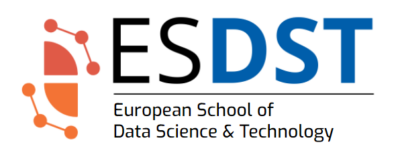As companies race into the complex world of Artificial Intelligence (AI) to discover new things Generative AI can do, CEOs have different viewpoints on its ethical implications. In the EY CEO Outlook Pulse Survey, nearly 65% of the CEOs agree that AI is an excellent force to commence. At the same time, roughly equal proportions said that more work is needed to address the social, security, and ethical risks from deep fakes and cyberattacks.
In today’s digital era, AI has become omnipresent, permeating various aspects of our lives, from personalized recommendations on streaming platforms to critical decision-making processes in healthcare and finances. 88% are integrating AI into the capital allocation, and almost half plan significant AI investments in the next year. The intersection of AI and ethics has always been questioned and sparked debates, raising concerns about its accountability, bias, and societal impact. At ESDST, the journey through AI is not a quest but an intricate path. But how exactly is it navigating it, and what does it mean for the graduates?
Oriol Vinyals, a Research Scientist at Google, says, “Generative models are changing the way we think about machine intelligence and creativity and have the potential to transform industries from media to finance to healthcare.”
Wait no more! Let’s delve into the intricate web of ethical dilemmas within AI, aiming to shed light on the complexities confronting businesses and policymakers.
The Ethical Landscape of Artificial Intelligence
In the World Economic Forum, over three-quarters of CEOs think that AI is good for society, but even a higher proportion, nearly 84%, agree that AI-based decisions must be justified and trusted. Here are the four critical areas in which a well-designed and deployed AI can either be seen as viable or debatable:
- Ethics and Regulations – Bias and Fairness
In 2024, more than 50+ documents have been published discussing morally responsible AI and exploring complex ethical dilemmas. While it is hard to debate ethical principles, organizations often find it challenging to take concrete action against their impact on daily life decision-making processes. AI algorithms are frequently built on biased information, leading to biased outcomes that have the ability to perpetuate social inequalities. This involves scrutinizing each AI decision and solution.
- Governance – Autonomy and Accountability
Accountability, responsibility, and adaptability of Responsible AI are part of enterprise governance from end to end. They must be liable to answer the AI-aligned business strategies processes depending on AI to improve the output consistency of operations and be able to track the performance of the employees. As AI systems are making autonomous decisions, such questions arise when things go haywire. So, who is responsible for the failure and harmful outcomes – Governance or AI itself?
- Robustness and Security – Privacy and Surveillance
AI systems must be resilient, secure, and safe to be increasingly capable of detecting and correcting faults or unethical parameters. Debating in terms of security, AI can be catastrophic if compromised by a third party or hijacked by potential hackers. The vast amounts of data fueling the AI systems are the increasing concerns about privacy infringement and surveillance. If not balanced, it can compromise individual privacy rights to the core. On the other hand, Sam Altman, CEO of OpenAI, shares a reflective perspective on the potential impacts of Generative AI and says, “Like with all technological revolutions, I expect there to be a significant impact on jobs, but exactly what that impact looks like is very difficult to predict. I believe that there will be far greater jobs on the other side of this and that the jobs of today will get better. I think it’s important to understand and think about GPT-4 as a tool, not a creature, which is easy to get confused, and it’s a tool that people have a great deal of control over and how they use it. And second, GPT-4 and other systems like it are good at doing tasks, not jobs.” He asserts that AI can be utilized to be adept at performing tasks, not jobs.
- Interpretability of AI and Explainability – Transparency
The opaque nature of many AI algorithms makes it difficult to understand how they have reached the decision. In organizations, at some point, it is crucial to justify how the stakeholders make a decision, and such explanations, when tailored to different stakeholders, can expose risks behind them. Ensuring transparency and explainability is crucial for building trust and accountability in AI systems.
Dialogues on Ethical Resolutions
The crucible of ethical debate is where a multitude of rays of hope emerge, shedding light on the many paths that lead to reconciliation:
- Frameworks for Ethical Conduct: The alchemy of comprehensive frameworks comes from the furnace of ethical inquiry, weaving the threads of ethical concern into the very fabric of AI research and deployment. Meta CEO Mark Zuckerberg says, “Generative AI is the key to solving some of the world’s biggest problems, such as climate change, poverty, and disease. It has the potential to make the world a better place for everyone.”
- Audits of Algorithms: In the heart of the maze-like corridors of artificial intelligence algorithms, the clarion cry for audits resounds, summoning out the scrutinizing gaze of impartial arbiters to uncover and remedy any biases lurking.
- Pedagogy of Ethics: In both academic and professional circles, the development of ethical expertise becomes a critical responsibility, fostering a group of stewards who possess the moral foresight necessary to navigate the complexities of artificial intelligence with wisdom and integrity.
- Regulatory mandates: Embody the codification of ethical imperatives, which are fundamental virtues governing artificial intelligence (AI). These principles are enshrined as cardinal virtues within the domain of AI governance.
Business institutions significantly impact the development of AI ethics as centers of learning and innovation. Business institutions can equip future professionals and leaders with the necessary skills to confront the ethical dilemmas presented by artificial intelligence by incorporating ethical considerations into their curricula and research agendas.
ESDST’s Quest to Enlighten Graduates on AI’s Moral Quandaries
ESDST, known for its esteemed reputation in academic inquiry, has initiated a daring exploration into the core of ethical dilemmas that arise with the emergence of artificial intelligence. By means of an intricate network of engaging activities, knowledgeable discussions, and wise guidance, ESDST is fostering a group of graduates who possess not only technical proficiency in the domains of artificial intelligence but also a comprehensive comprehension of its ethical ramifications.
The curriculum at ESDST has been carefully designed to cultivate a profound understanding of the ethical obligations and societal ramifications of artificial intelligence among its alumni. By conducting an in-depth analysis of data independence and confidentiality, as well as the dangers of algorithmic bias, ESDST’s multidisciplinary methodology provides learners with an all-encompassing set of skills to make ethical decisions in the field of artificial intelligence. In addition to encouraging graduates to speak up for legitimate artificial intelligence practices in their economic endeavors, ESDST’s dedication to cultivating ethical management transcends the boundaries of education. Equipped with an extensive comprehension of the ethical obligations associated with AI, individuals who have completed the ESDST program exemplify responsible, ethical leadership by advocating for honesty, openness, and morality in advancing and implementing AI technologies.
Keep this in mind as you undertake your personal ethical journey: the decisions you make now will profoundly impact the future of artificial intelligence. Do you intend to decide to adhere to the principles of integrity and impartiality in your pursuit of ethical stewardship? At every stage, ESDST stands by to assist you in your decision-making process.
Conclusion
As we traverse this terrain, it becomes apparent that a multifaceted strategy is necessary to deal with these dilemmas of ethics; this strategy must transcend divisions between disciplines and encourage collaboration among interested parties from diverse realms. The discourse surrounding AI ethics resonates throughout academic circles and corporate boardrooms, reflecting the shared desire for a future in which AI is accountable and morally serves humanity.
Notwithstanding the discussions and conversations, one thing is unmistakable: the critical nature of our undertaking. The moral and legal decisions that we make in the present will have profound consequences for society and technological development in the years to come as AI continues to influence every facet of our existence.
Amidst conditions of unpredictability and intricacy, we must maintain the utmost ethical principles and advocate for honesty, impartiality, and openness in the advancement and implementation of artificial intelligence technologies. Our unwavering dedication to investigation into ethics and moral perception, in conjunction with our shared efforts, is what enables us to establish a future in which AI enhances lives, promotes inclusivity, and advances society as a whole.

